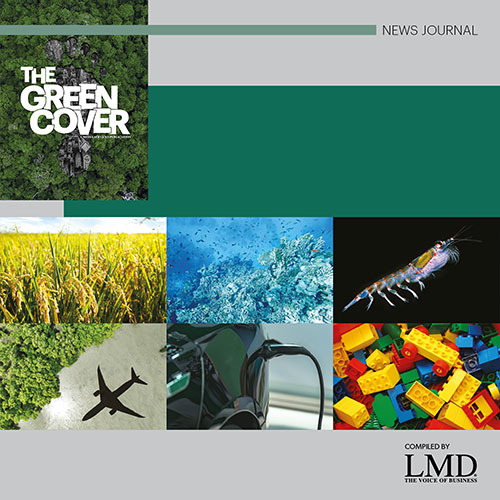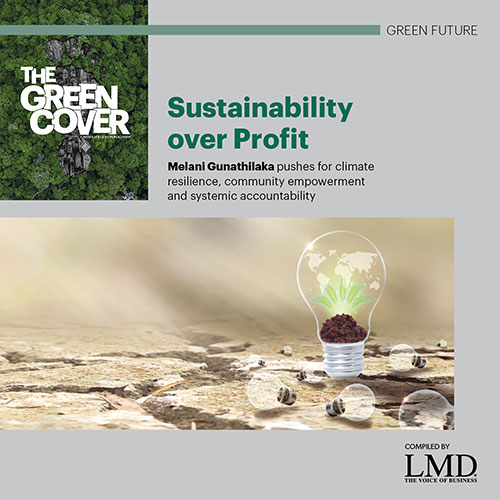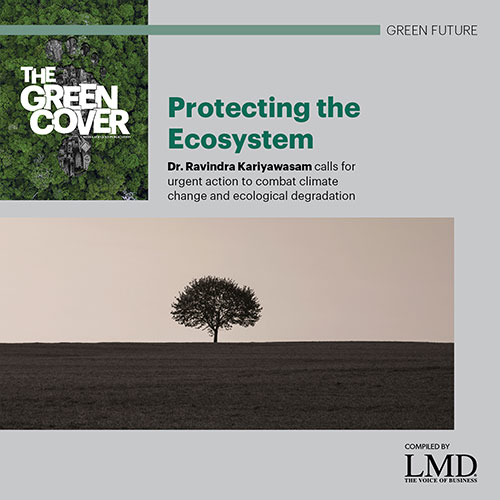CORPORATE PROFILES
HAYLEYS FABRIC

Q: Could you outline why stakeholder enga-gement is vital for sustainability efforts?
A: If you look back, sustainability was not even a topic that businesses considered; but rather, it was more about the focus on financials. The scope then changed, bringing health and safety into the picture.
Soon, CSR became a highlight and its initiatives were discussed where stakeholders self-reflected on the extent to which businesses were socially responsible.
Sustainability takes centre stage today. These components together are what we now refer to as the triple bottom line and they’re crucial to a business in terms of the value to its stakehol-ders.
Taking Hayleys Fabrics’ role as a manufacturer as an example, the sector is unfortunately detrimental to the environment.
But this also means reputable brands will seek manufacturers that care about the environment, and have taken measures to minimise and cause the least amount of damage in this regard, while also taking into consideration their sustainability strategies and initiatives.
Hayleys Fabrics works alongside some of the most recognised brands including the world’s best sports, lingerie and apparel names in the West. All these brands value the triple bottom line implicitly, and will insist that we ensure our supply chain also conforms to internationally acclaimed standards and certifications.
It is vital for Sri Lankan manufacturers to pay heed to the triple bottom line because today’s consumers are conscious of what they are wearing, how and where it was manufactured, and what standards were adhered to.
 Q: And could you elaborate on some initiatives that Hayleys Fabrics partakes in when it comes to investing in combatting climate change?
Q: And could you elaborate on some initiatives that Hayleys Fabrics partakes in when it comes to investing in combatting climate change?
A: There have been many – such as the water treatment initiatives found in Sri Lanka.
Most of the leading names in the apparel industry have joined forces in an international initiative known as the Zero Discharge of Hazar-dous Chemicals (ZDHC) where we are given a timeline to eliminate the discharge of hazardous chemicals.
Hayleys Fabrics takes pride in being one of the first organisations to achieve this feat, two years prior to the deadline.
Another form of recognition that we are proud of is the continuous accolades conferred to a world-class sports brand where we’ve received the highest ranking of green certification for our water purification processes.
To reduce our emissions, we have also ventured into solar power. We are now positioned as the largest single roof solar producer in Sri Lanka, generating four megawatts of solar power.
In addition to this, we have reached the point of recycling almost 20 percent of our water, and developed fabric process methodologies that reduce the consumption of water and energy, and emissions.
We are also using sawdust to generate bet-ween 60 and 70 percent of our steam requirement for the production process instead of using furnace oil, thereby reducing emissions to the environment.
Furthermore, we may be the first organisation to own and invest in an eight acre biodiversity park. We also own and maintain 20 acres of forest land as a greenbelt within our premises.
Apart from these initiatives, Hayleys Fabric has also made a commitment to the Science Based Targets initiative (SBTi), which has been globally recognised for its commitment to addressing climate change. This will help reduce greenhouse gas emissions and enable us to reach net zero emissions by 2050.
Hayleys Fabric also recently committed to the CEO Water Mandate – a United Nations Global Compact (UNGC) initiative targeting more sustainable water management sanitation and stewardship.
Q: What are the latest trends in terms of sustainability?
A: Innovation and sustainability are considered to be cornerstones of the Hayleys Group. Many specialists across the companies in the group work on these areas.
At Hayleys Fabric, we’ve recruited many recog-nised professionals who were brought in with the aim of focussing solely on innovation and sustainability initiatives.
 Among these initiatives, we have developed natural dyes to use on some of our fabric ins-tead of laboratory manufactured dyes.
Among these initiatives, we have developed natural dyes to use on some of our fabric ins-tead of laboratory manufactured dyes.
We’ve also cooperated on a PET bottle project with a local recycled yarn manufacturer. This involves making use of PET bottles found on Sri Lanka’s beaches. And there has been high demand from leading clothing brands for fabric made from recycled PET bottles.
Additionally, Hayleys Fabric has also produced a mobile application to scan QR codes found on garments and learn how many PET bottles have been used to make them, as well as obtain other details.
Rohan Goonetilleke
Managing Director
CEO
Telephone 034 2297100 | Email info@hayleysfabric.com | Website www.hayleysfabric.com





